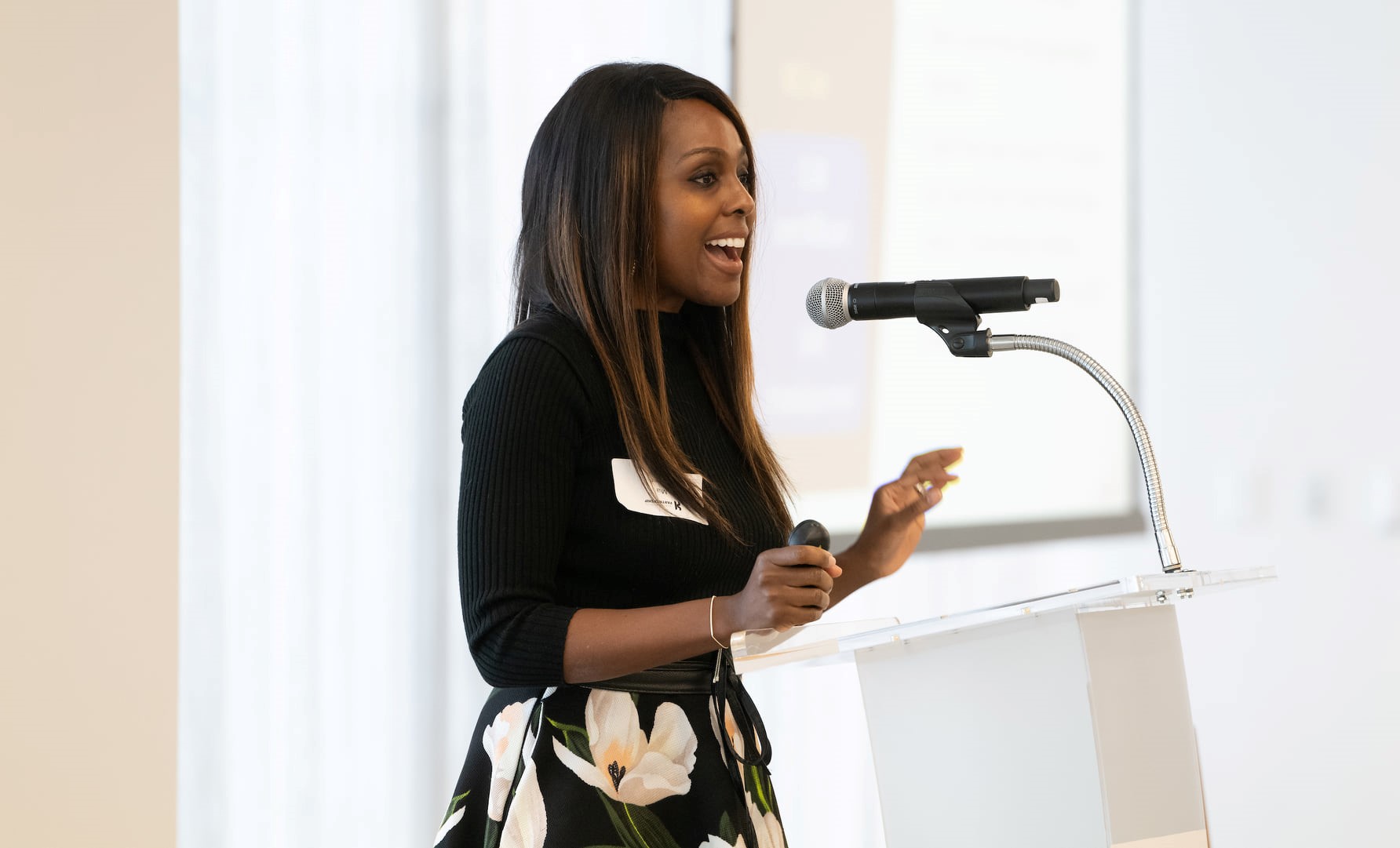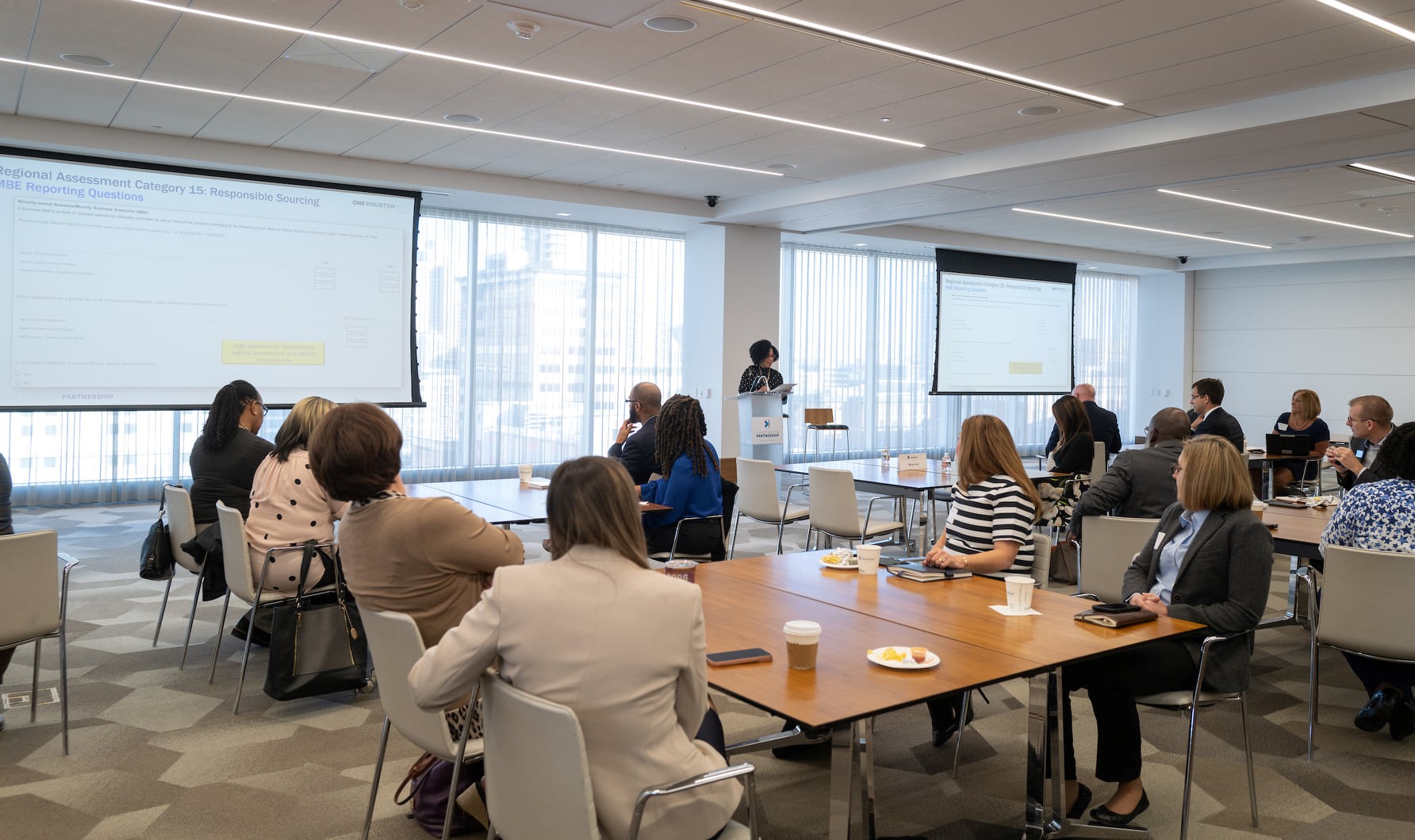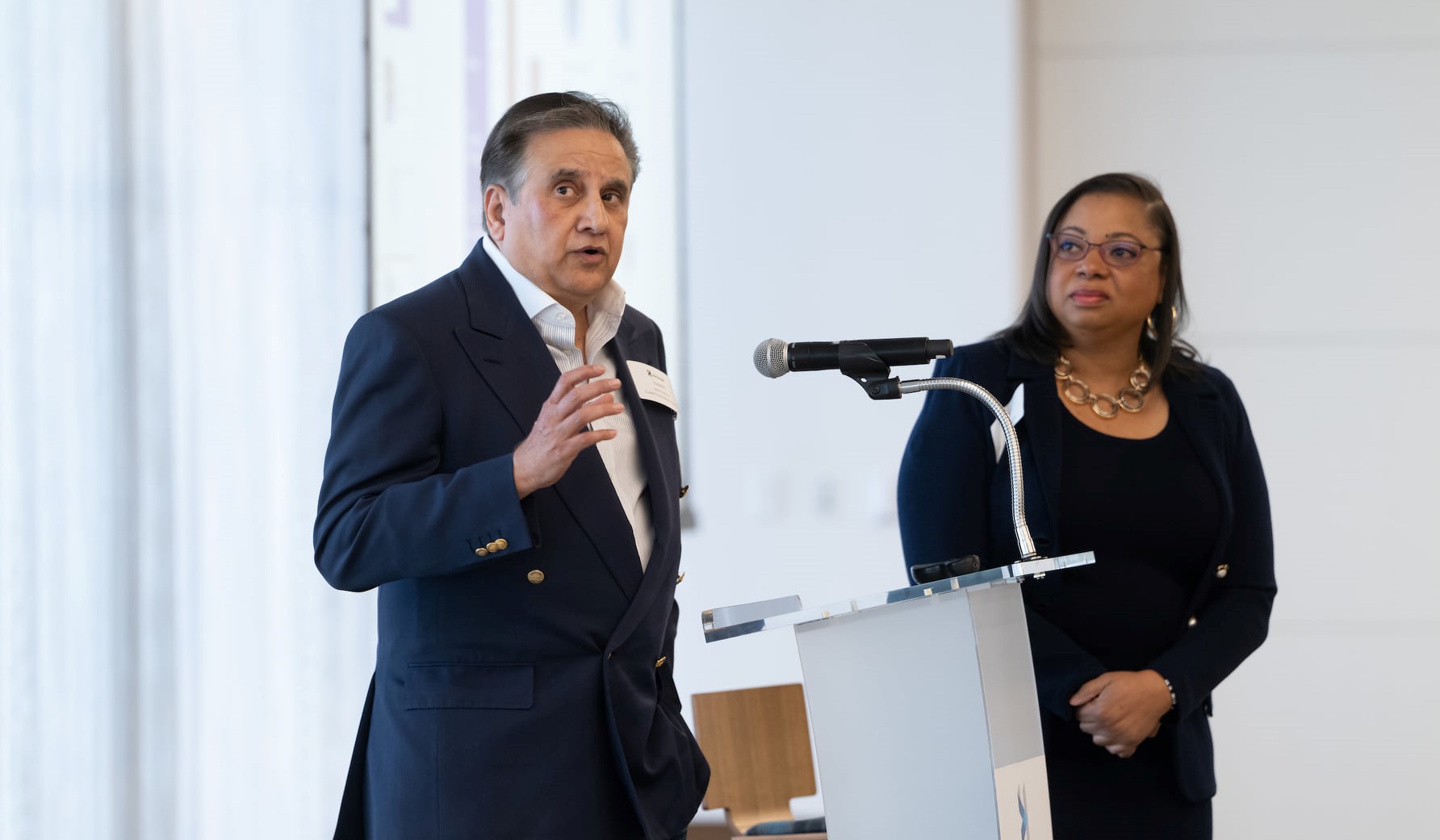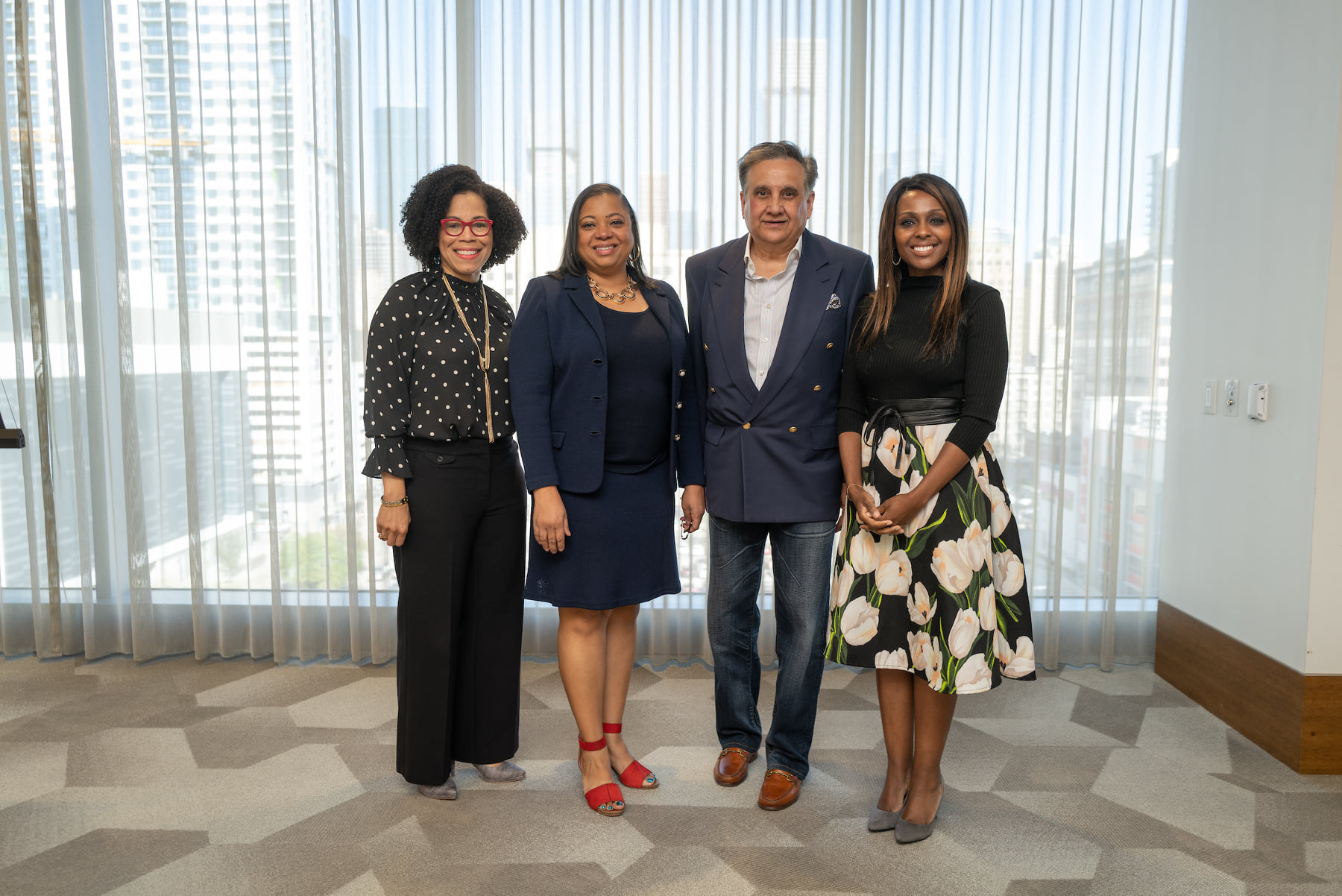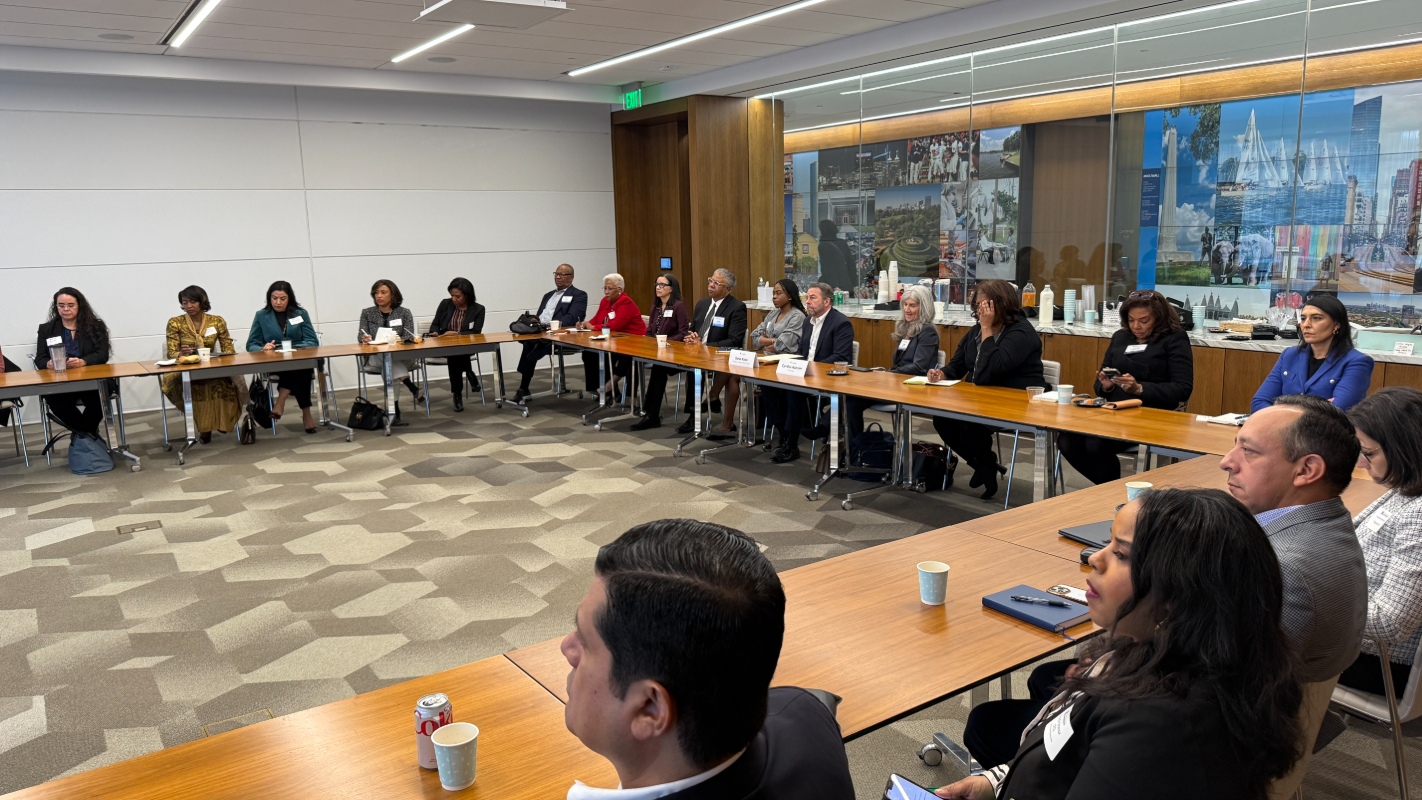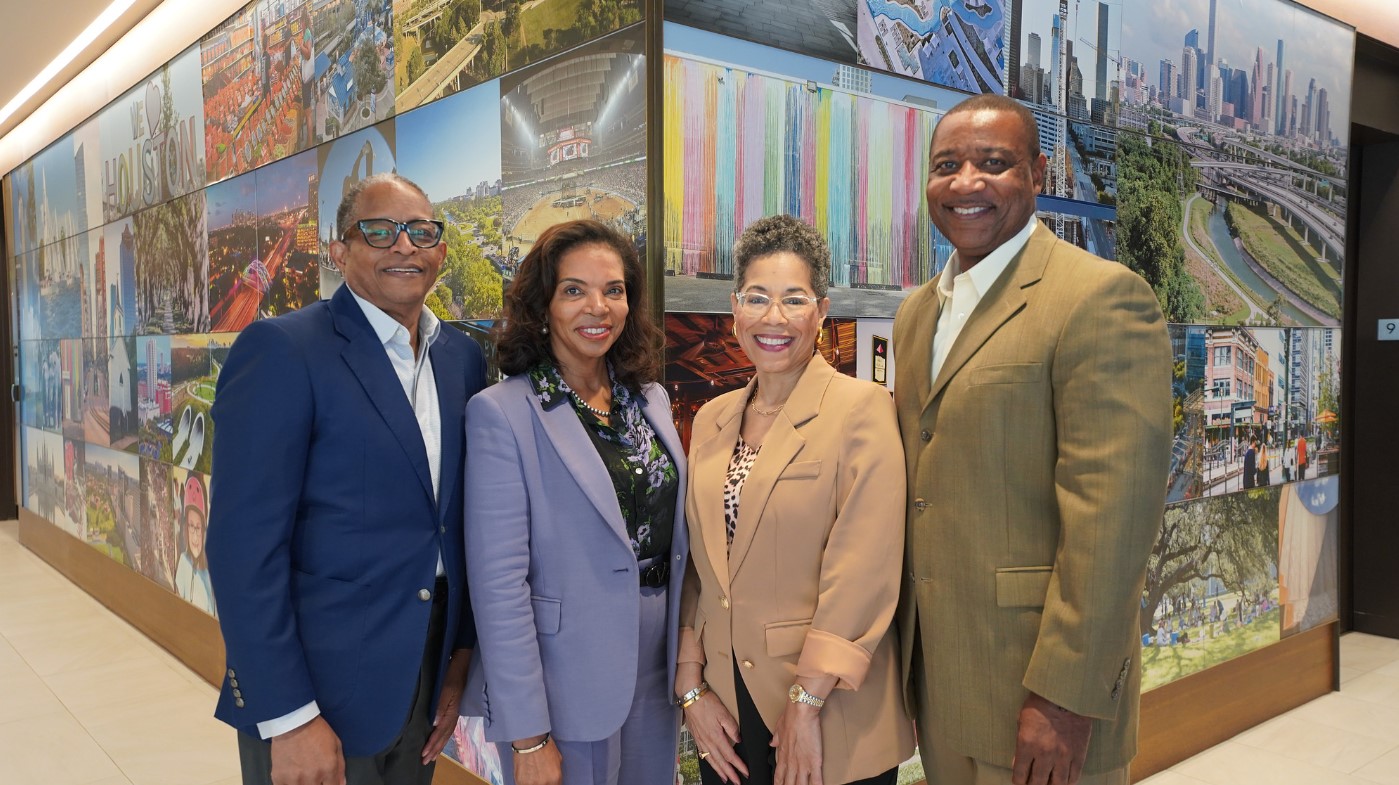One Houston Together: Member Spotlight on Sodexo's Roadmap to Global Inclusion; Updated MBE Analysis for Houston
Published Apr 13, 2022 by A.J. Mistretta
Results from the 2021 Houston Region Equity & Inclusion Assessment showed that responsible sourcing/supplier diversity is the least mature DEI practice for our region. That’s why the Partnership’s One Houston Together initiative is making supplier diversity one of its priorities along with Talent Advancement and Board Representation.
Local business leaders gathered at Partnership Tower in late March for the latest Supplier Diversity Roundtable discussion, which featured a presentation from Partnership Board Member and Racial Equity Committee Member Mia Mends. Mends is the Global Chief DEI Officer and CEO of Impact Ventures at Sodexo, an international facilities management and food services company with 420,000 employees worldwide.
Mends discussed the evolution of Sodexo’s two-decades of work in diversity, equity and inclusion. “What started as a journey focused on compliance has become one of deep culture transformation and conviction because we’ve sustained this work,” she said.
Sodexo’s Better Tomorrow 2025 plan includes specific targets across nine global commitments and objectives. These include ensuring a diverse workforce and inclusive culture that reflects and enriches the communities the company serves as well as driving diversity and inclusion as a catalyst for societal change. Mends discussed how the company establishes and meets goals in these areas.
“When I talk about the work we do, I have to insist that this is part of the infrastructure of the company and that we cannot look at DEI as a discreet activity or initiative,” she said. “We have built a foundation that makes this work possible.”
Making the company’s commitments and goals public means Sodexo must honor them, Mends said.
A decade ago, for example, about 22% of the company’s top leaders were female. Today, that figure has nearly doubled to 43%. “We know the formula that works because we’ve used it for gender, now we need to use it everywhere else,” Mends said.
When it comes to supplier diversity, each country Sodexo operates in must meet a spending target of at least 25% with SMEs. In the U.S., 26.3% of Sodexo’s 2021 procurement was spent with diverse and small businesses. The company also encourages its direct vendors to contract with SMEs for what’s termed “Tier 2 spend.” Mends said 223 of Sodexo’s U.S. suppliers report Tier 2 spending with SMEs.
By tying supplier diversity targets to an organization’s entire supply chain, you ensure DEI isn’t just a department in the corner but rather a vital part of the everyday conversation and operations.
Partnership Senior Vice President of DEI LaTanya Flix also provided several progress updates during the Roundtable.
The Houston Minority Supplier Development Council (HMSDC) and Customer Technology Solutions have developed an online tool aggregating local certified minority businesses (MBEs) in one database for organizations seeking diverse suppliers. The tool was demoed during the roundtable and slated to launch in coming months will allow users to search by company, industry, services provided and other criteria. MBEs will also be able to add themselves to the platform.
Through One Houston Together, the Partnership is partnering with HMSDC on a new economic impact analysis of the region’s MBEs. The analysis was prepared in 2019 by HMSDC and will be updated for 2020 and will include data on jobs supported by Houston-area MBEs, total wages earned by those employees, total revenue of Houston MBEs, GDP impact of MBES, and the overall economic production generated by Houston-region Minority Business Enterprises.
“This analysis establishes a baseline of the impact these businesses have in our region and helps make the case for advancing and expanding supplier diversity,” Flix said.
Learn more about One Houston Together and the Equity & Inclusion Assessment.
 The Houston Report
The Houston Report